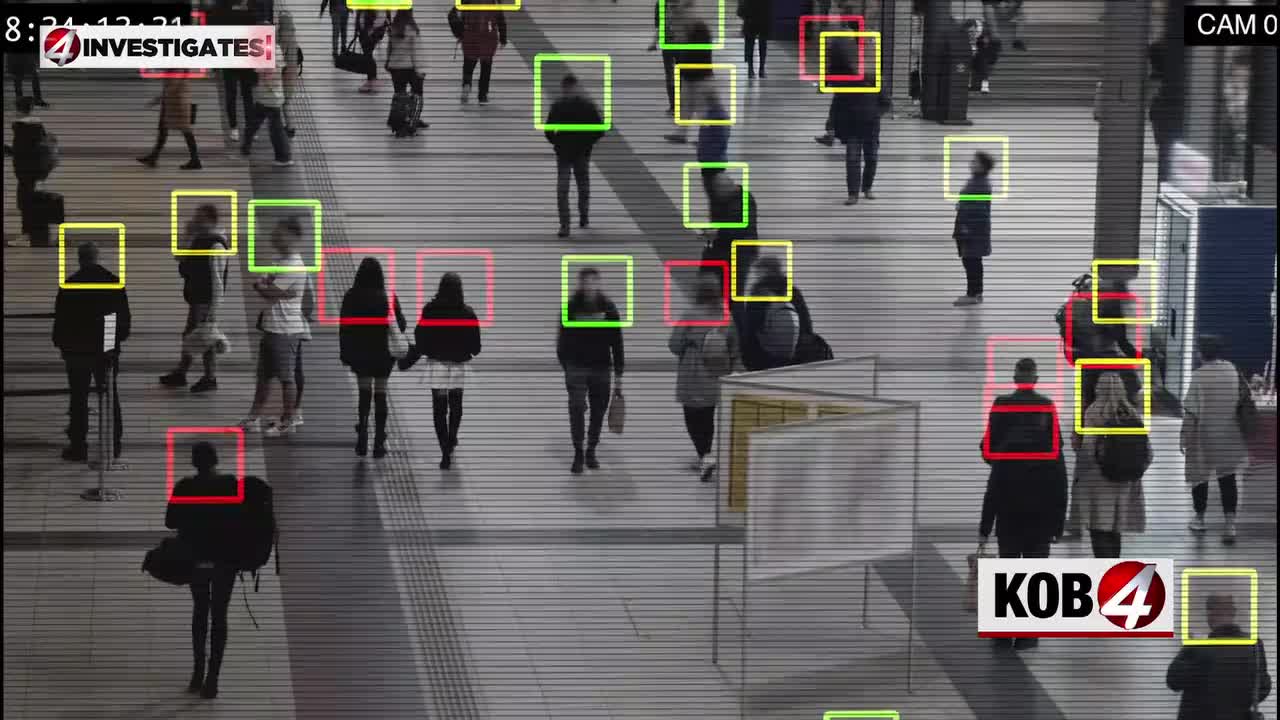Is AI Therapy A Surveillance Tool In A Police State?

Table of Contents
The Alluring Promise of AI Therapy
AI therapy holds immense potential to revolutionize mental healthcare. Its advantages stem from increased accessibility and affordability, as well as the capacity for personalized treatment plans.
Accessibility and Affordability
AI-powered therapy platforms offer several advantages over traditional therapy:
- Reduced stigma: Accessing mental healthcare through an app can reduce the stigma often associated with seeking professional help, encouraging more people to seek support.
- 24/7 availability: Unlike traditional therapy sessions, AI therapy is available anytime, anywhere, providing immediate support when needed.
- Cost-effectiveness: AI therapy can be significantly more affordable than traditional therapy, making it accessible to individuals with limited financial resources. This is particularly crucial in underserved communities with limited access to mental health professionals.
Personalized Treatment Plans
AI algorithms can analyze user data to create highly personalized treatment plans:
- Data-driven insights: AI can identify patterns and trends in user data to optimize treatment strategies and predict potential setbacks.
- Tailored interventions: Treatment plans can be tailored to address specific mental health conditions and individual needs, maximizing effectiveness.
- Continuous monitoring and adjustment: AI can continuously monitor user progress and adjust treatment plans accordingly, ensuring optimal outcomes.
The Dark Side: Surveillance and Data Privacy Concerns
While AI therapy offers many benefits, significant concerns exist regarding data collection, storage, and potential misuse for surveillance.
Data Collection and Storage
AI therapy platforms collect vast amounts of personal data, including emotional responses, personal details, and behavioral patterns. This raises several security risks:
- Vulnerability to hacking and data breaches: The sensitive nature of this data makes AI therapy platforms a prime target for cyberattacks, potentially exposing private information.
- Lack of transparency: There's often a lack of transparency regarding how data is used and stored, raising concerns about potential misuse.
- Unauthorized access: Unauthorized access and misuse of sensitive information, including sharing it with third parties without consent, pose a considerable risk.
Government Surveillance and Control
In authoritarian regimes, AI therapy data could be exploited for surveillance and control:
- Identifying dissent: Governments could use AI to identify and monitor individuals expressing dissenting opinions or exhibiting signs of mental instability deemed threatening to the regime.
- Predictive policing: User data and behavior patterns could be used for predictive policing, targeting individuals deemed likely to engage in disruptive behavior.
- Censorship and suppression: AI-powered monitoring could be used to censor and suppress dissent by identifying and targeting individuals expressing critical viewpoints.
Lack of Regulation and Ethical Guidelines
The absence of robust regulations and ethical guidelines surrounding AI therapy poses a significant challenge:
- Need for clear legal frameworks: Strong legal frameworks are needed to protect user privacy and data security.
- Ethical considerations: Ethical considerations surrounding data ownership, informed consent, and the potential for bias in algorithms require careful attention.
- Independent oversight: Independent oversight and accountability mechanisms are essential to ensure responsible development and use of AI therapy.
Balancing Innovation with Ethical Responsibility
The potential benefits of AI therapy should not come at the cost of individual privacy and freedom. A balance must be struck between technological innovation and ethical responsibility.
Developing Secure and Privacy-Preserving AI Therapy Systems
Technological advancements are crucial to ensure user privacy and data security:
- Robust encryption and anonymization: Implementing robust encryption and anonymization techniques is essential to protect user data from unauthorized access.
- Privacy-enhancing technologies: Development and integration of privacy-enhancing technologies (PETs) into AI therapy platforms is vital.
- Transparency and user control: Transparency and user control over data access and usage are crucial for building trust and fostering responsible innovation.
Strengthening Legal Frameworks and Ethical Guidelines
Governments and regulatory bodies must play a crucial role in establishing robust legal frameworks and ethical guidelines:
- Data protection laws: Specific data protection laws addressing AI therapy data are urgently needed.
- Independent audits: Regular independent audits of AI therapy platforms can help ensure compliance with data protection regulations and ethical guidelines.
- Mechanisms for redress: Effective mechanisms for user redress and accountability in cases of data misuse are essential.
Conclusion
AI therapy offers significant potential for improving mental healthcare access and personalization. However, the risks associated with data privacy and potential misuse, especially in a police state context, cannot be ignored. The future of AI therapy depends on our collective vigilance. We must demand greater transparency from technology companies, advocate for stricter regulations, and promote the responsible development of AI therapy systems that prioritize user privacy and ethical considerations. Let's ensure that AI therapy remains a tool for healing, not oppression. The responsible development and implementation of AI therapy require a concerted effort from developers, policymakers, and users alike. Let's work together to harness the power of AI for good, ensuring that this innovative technology benefits all of humanity.

Featured Posts
-
 Lafc Victory Over San Jose Earthquakes Impact Of Daniels Injury
May 15, 2025
Lafc Victory Over San Jose Earthquakes Impact Of Daniels Injury
May 15, 2025 -
 March 22nd Nhl Toronto Maple Leafs Vs Nashville Predators Prediction And Best Bets
May 15, 2025
March 22nd Nhl Toronto Maple Leafs Vs Nashville Predators Prediction And Best Bets
May 15, 2025 -
 Toezichthouder Npo Discussie Over Leeflang Tussen Bruins En Omroep
May 15, 2025
Toezichthouder Npo Discussie Over Leeflang Tussen Bruins En Omroep
May 15, 2025 -
 2024s Most Popular Baby Names A Look At The Trends
May 15, 2025
2024s Most Popular Baby Names A Look At The Trends
May 15, 2025 -
 Bangladesh Election Sheikh Hasinas Party Banned
May 15, 2025
Bangladesh Election Sheikh Hasinas Party Banned
May 15, 2025
